
Al-Karada: The Vibrant Heart of Baghdad
Al-Karada is one of Baghdad's most dynamic and lively neighbourhoods, making it a must-visit destination for tourists. Known for its bustling streets, rich history, and vibrant culture, Al-Karada offers a unique blend of traditional Iraqi charm and modern urban life. From the moment you step into this neighbourhood, you'll be greeted by the sounds of street vendors, the aroma of freshly baked bread, and the sight of colourful markets. It's a sensory experience that captures the essence of Baghdad. Al-Karada is home to some of Baghdad's most iconic landmarks. The area is known for its impressive mosques, historical sites, and cultural institutions. One of the highlights is the Al-Karada Church, a beautiful example of Baghdad's diverse religious heritage. The neighbourhood also boasts a variety of museums and art galleries where you can explore the rich history and culture of Iraq. Food lovers will find Al-Karada a paradise. The neighbourhood is famous for its diverse culinary scene, offering everything from traditional Iraqi dishes to international cuisine. Be sure to try the local specialties, such as kebabs and falafel, at one of the many street food stalls or family-owned restaurants. The bustling markets are also a great place to sample fresh produce and local delicacies. Shopping in Al-Karada is an experience in itself. The neighbourhood is renowned for its markets and bazaars, where you can find everything from handmade crafts to modern fashion. Whether you're looking for a unique souvenir or a gift for loved ones back home, Al-Karada has something for everyone. The friendly locals and vibrant atmosphere make shopping here a delightful experience. In the evenings, Al-Karada comes alive with music, cafes, and social gatherings. The neighbourhood's nightlife is a blend of traditional and contemporary, offering a variety of options for entertainment. From lively shisha cafes to modern bars, there's something for everyone to enjoy. It's the perfect place to unwind after a day of exploring.
Local tips in Al-Karada
- Visit early in the morning to experience the local markets at their liveliest.
- Dress modestly to respect local customs and traditions.
- Try the local street food for an authentic taste of Iraqi cuisine.
- Carry some cash, as many small vendors may not accept credit cards.
- Learn a few basic Arabic phrases to enhance your interactions with locals.
Al-Karada: The Vibrant Heart of Baghdad
Al-Karada is one of Baghdad's most dynamic and lively neighbourhoods, making it a must-visit destination for tourists. Known for its bustling streets, rich history, and vibrant culture, Al-Karada offers a unique blend of traditional Iraqi charm and modern urban life. From the moment you step into this neighbourhood, you'll be greeted by the sounds of street vendors, the aroma of freshly baked bread, and the sight of colourful markets. It's a sensory experience that captures the essence of Baghdad. Al-Karada is home to some of Baghdad's most iconic landmarks. The area is known for its impressive mosques, historical sites, and cultural institutions. One of the highlights is the Al-Karada Church, a beautiful example of Baghdad's diverse religious heritage. The neighbourhood also boasts a variety of museums and art galleries where you can explore the rich history and culture of Iraq. Food lovers will find Al-Karada a paradise. The neighbourhood is famous for its diverse culinary scene, offering everything from traditional Iraqi dishes to international cuisine. Be sure to try the local specialties, such as kebabs and falafel, at one of the many street food stalls or family-owned restaurants. The bustling markets are also a great place to sample fresh produce and local delicacies. Shopping in Al-Karada is an experience in itself. The neighbourhood is renowned for its markets and bazaars, where you can find everything from handmade crafts to modern fashion. Whether you're looking for a unique souvenir or a gift for loved ones back home, Al-Karada has something for everyone. The friendly locals and vibrant atmosphere make shopping here a delightful experience. In the evenings, Al-Karada comes alive with music, cafes, and social gatherings. The neighbourhood's nightlife is a blend of traditional and contemporary, offering a variety of options for entertainment. From lively shisha cafes to modern bars, there's something for everyone to enjoy. It's the perfect place to unwind after a day of exploring.
Iconic landmarks you can’t miss
Martyr Monument
A poignant Baghdad landmark honoring Iraqi martyrs, featuring a stunning turquoise dome and symbolic design.
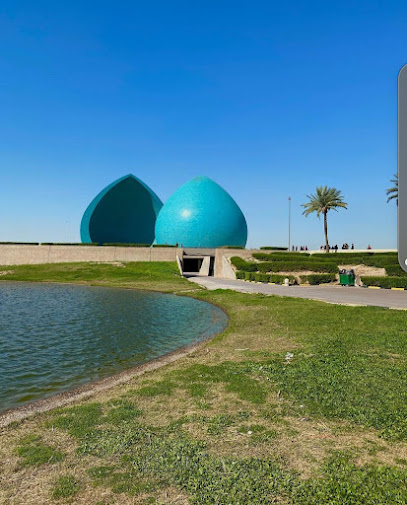
Saving Iraqi Culture Monument
A powerful symbol of Iraq's cultural heritage and resilience, honoring the past and inspiring the future.
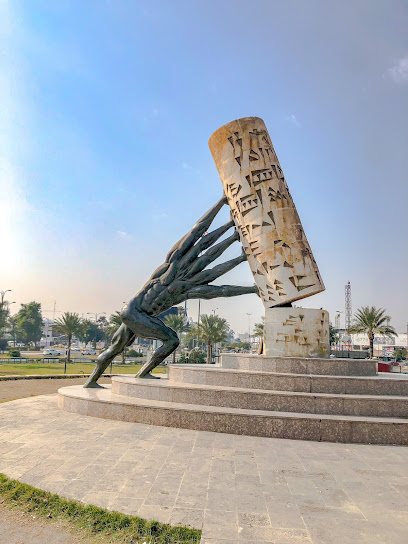
Firdos Square
Explore Firdos Square in Baghdad, a historical landmark reflecting Iraq's journey and resilience, and a vibrant hub for locals and tourists alike.
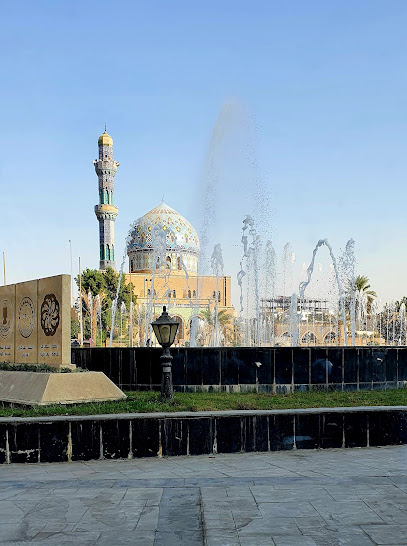
Tahrir Monument
A symbol of Iraq's independence and resilience, the Tahrir Monument stands as a powerful reminder of the nation's journey toward freedom.
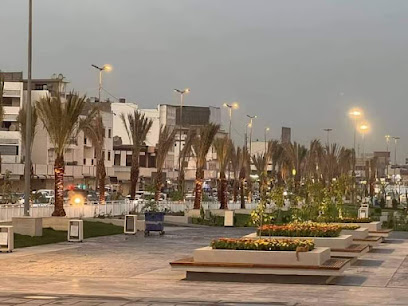
Unknown Soldier Monument
A poignant Baghdad landmark honoring Iraq's fallen soldiers, featuring unique architecture and an underground museum. A place for reflection and remembrance.
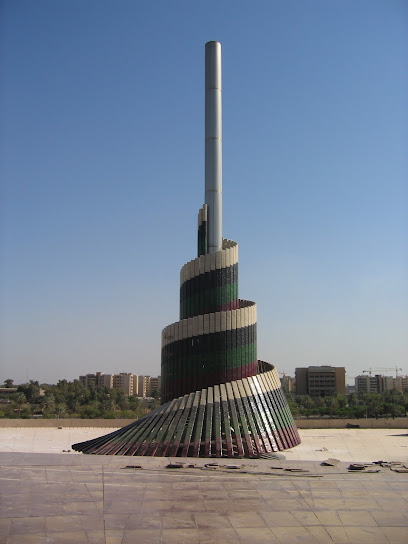
Kahramana Sq.
Discover Kahramana Square in Baghdad: A vibrant memorial park with a statue symbolizing courage and a rich cultural heritage.
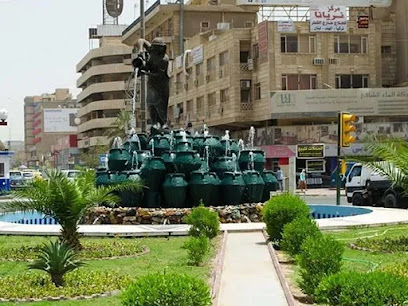
Victory Arch
Explore the Victory Arch in Baghdad, a controversial yet iconic monument commemorating the Iran-Iraq War and symbolizing Iraq's resilience.
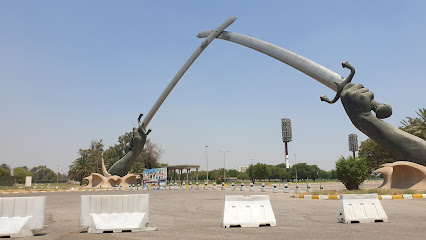
Kahramana statue
A symbol of Baghdad's resilience, the Kahramana statue brings to life a classic tale of courage from One Thousand and One Nights.
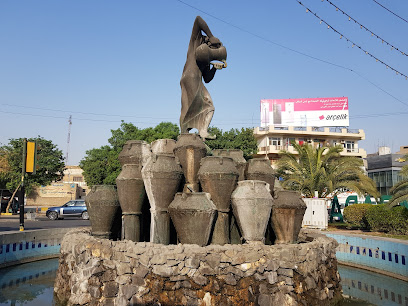
Zaqura Castle
Explore Zaqura Castle in Baghdad: A historical gem with stunning architecture reflecting Iraq's rich cultural heritage.
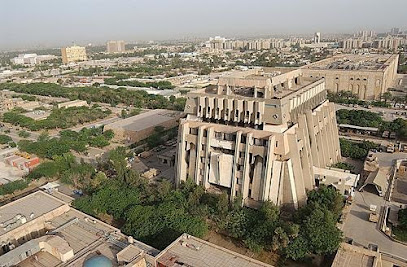
ساحة عبد القادر الجزائري
Discover tranquility and local charm at Sahat Abd al-Qadir al-Jazairi, a beautiful garden oasis in the heart of Baghdad, perfect for relaxation and cultural immersion.
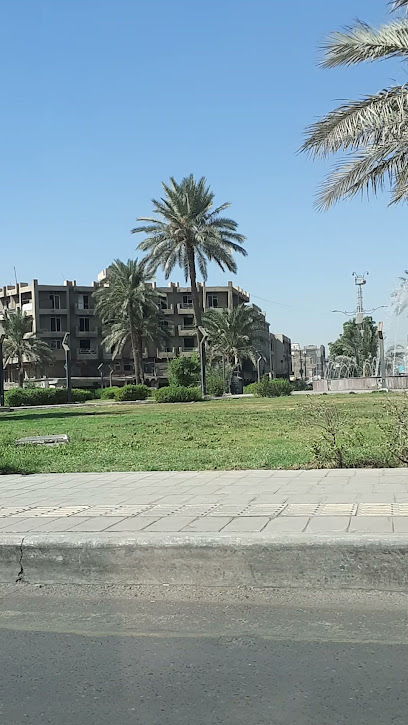
Remains of Talsam gate
Explore the historic Remains of Talsam Gate in Baghdad, a landmark echoing tales of ancient civilization and architectural brilliance.
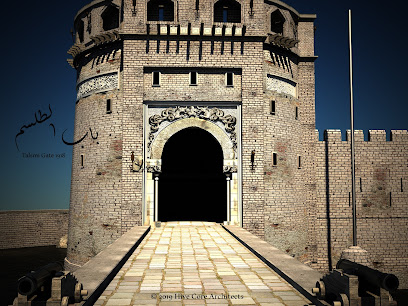
تقاطع المسبح
Discover the vibrant culture of Baghdad at Taqat Al-Masbah, the city's lively town square filled with local cuisine, art, and tradition.
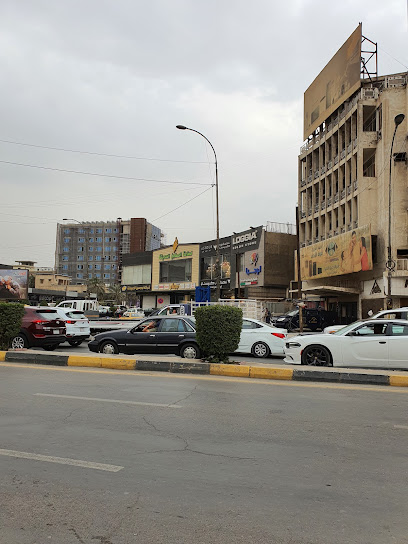
Unmissable attractions to see
Zoo - Zawraa Park
Discover diverse wildlife in the heart of Baghdad at Zawraa Park's family-friendly zoo.
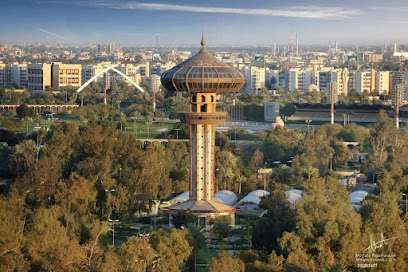
Martyr Monument
A poignant Baghdad landmark honoring Iraq's martyrs, featuring stunning architecture and a museum reflecting on the nation's history.
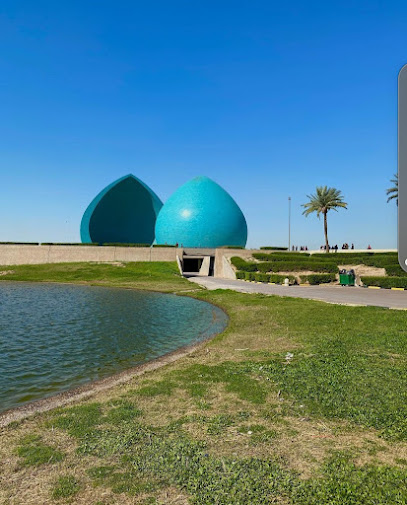
Firdos Square
Explore Firdos Square in Baghdad, a historical landmark reflecting Iraq's journey and resilience, from ancient monuments to modern cultural space.
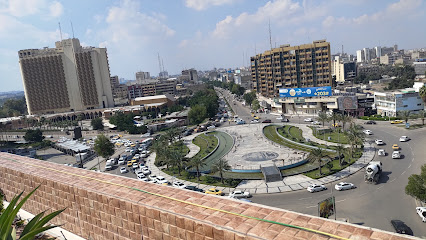
Al-Salam Palace
Discover Al-Salam Palace in Baghdad, a landmark of Iraqi history, architecture, and cultural significance, reflecting the nation's journey to peace.
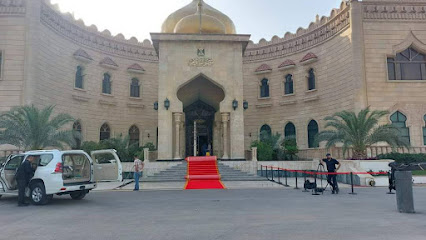
Kahramana
Iconic Baghdad fountain depicting the legendary Kahramana from Ali Baba and the Forty Thieves, a symbol of Iraqi art and folklore.
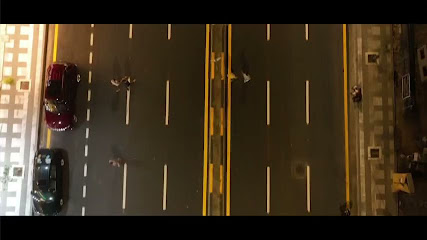
نصب النخلة
Discover Baghdad's iconic Palm Monument: A cultural symbol of heritage, resilience, and the enduring spirit of Iraq.
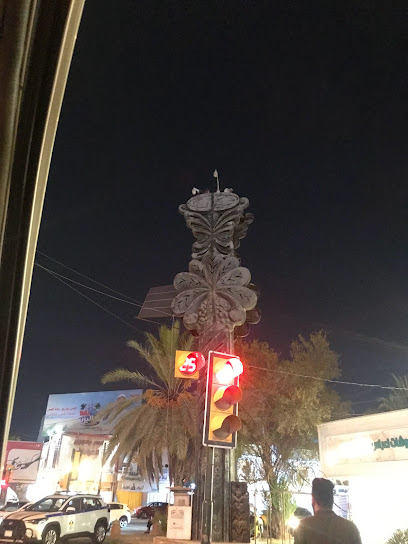
آثار
Experience the rich history and vibrant culture of Baghdad at آثار, a must-visit tourist attraction showcasing Iraq's heritage.

Essential places to dine
Zarzoor Restaurant - Al Karrada
Experience authentic Iraqi flavors at Zarzoor Restaurant in Al Karrada - a culinary delight amidst Baghdad's vibrant dining scene.
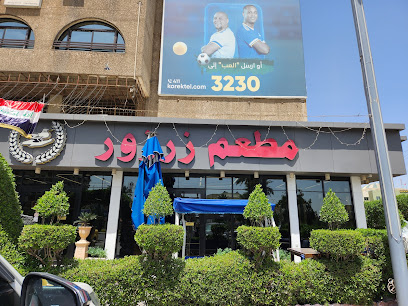
Al-Faisaliya Restaurant & Cafe
Discover the authentic taste of Iraq at Al-Faisaliya Restaurant & Cafe, where traditional cuisine meets modern ambiance in Baghdad.
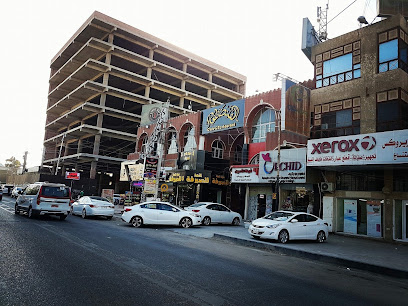
HuQQabaz Baghdad
Experience the exquisite fusion of traditional Iraqi cuisine and modern flavors at HuQQabaz Baghdad - A culinary gem in the heart of Iraq.
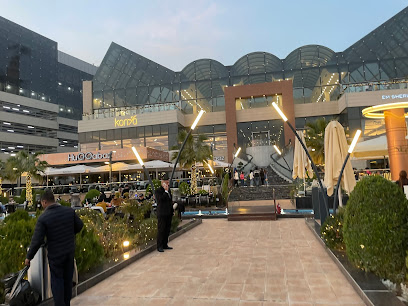
Latakia Restaurant
Experience the essence of Middle Eastern cuisine at Latakia Restaurant in Baghdad – where tradition meets flavor.
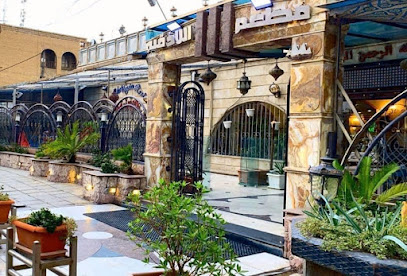
Dojo´s
Discover authentic Iraqi flavors at Dojo's – where tradition meets modern dining in the heart of Baghdad.
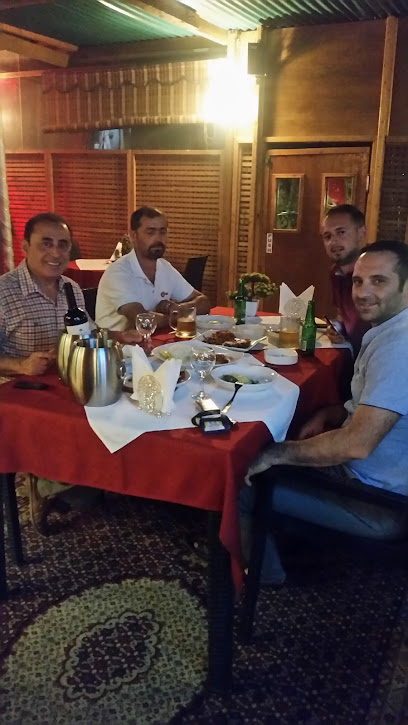
مطعم كرم بغداد - Karam Baghdad Restaurant
Experience authentic Iraqi flavors at Karam Baghdad Restaurant, where tradition meets modern dining in the heart of Outer Karrada.
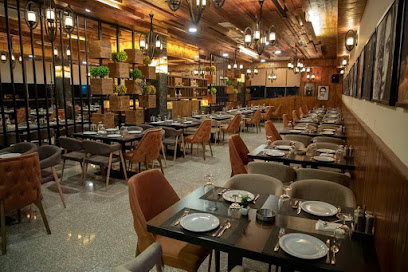
De Rose Cafe
Experience authentic Iraqi cuisine at De Rose Cafe in Baghdad—where flavor meets hospitality in a cozy setting.
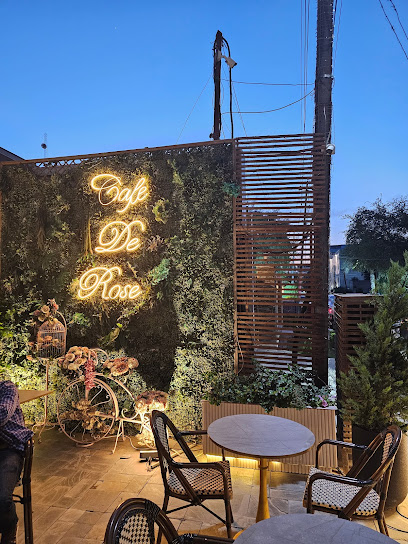
Golden Car Restaurant عربانة
Experience authentic Iraqi cuisine at Golden Car Restaurant in Baghdad - where flavors meet tradition in every dish.
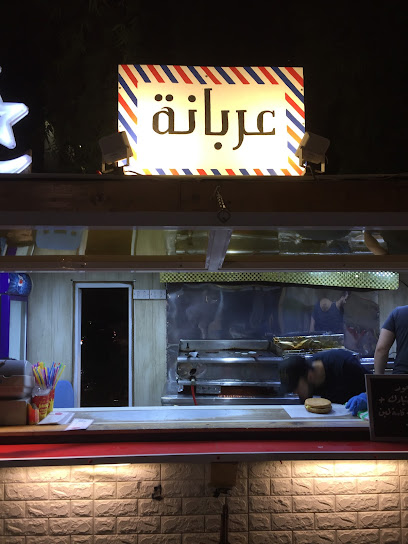
علي
Discover authentic Iraqi flavors at Ali Restaurant in Baghdad - where tradition meets taste in an inviting atmosphere.

Al Jandal Restaurant
Experience authentic Iraqi cuisine at Al Jandal Restaurant in Baghdad's Inner Karada district; a delightful journey through local flavors.
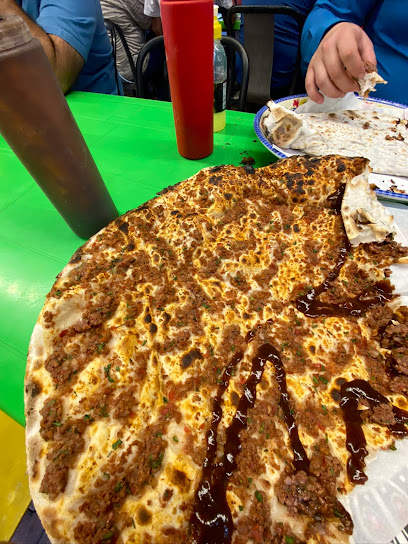
Markets, malls and hidden boutiques
Sama Mall
Discover the vibrant shopping experience at Sama Mall in Baghdad, offering diverse stores and a taste of local culture.
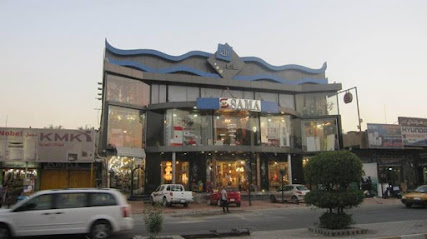
Iraq Mall
Experience the vibrant mix of shopping, dining, and entertainment at Iraq Mall, a shopping gem in the heart of Baghdad.
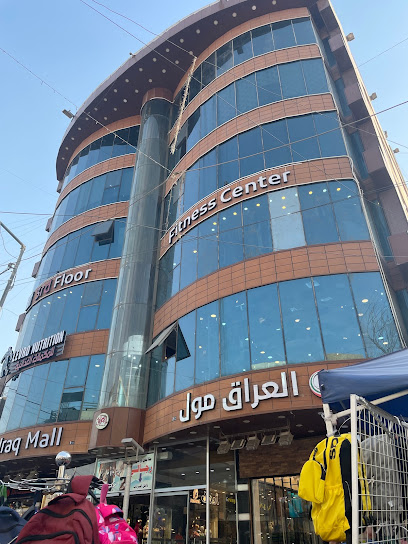
Nome Home Shopping
Explore Nome Home Shopping in Baghdad, where local flavors meet international variety in a vibrant supermarket experience.

Departmental Store
Explore a vibrant shopping destination in Baghdad offering fashion, local crafts, and unique cultural experiences in one fantastic department store.

PUMA
Explore PUMA Baghdad: The ultimate destination for high-quality sportswear and stylish athletic apparel.
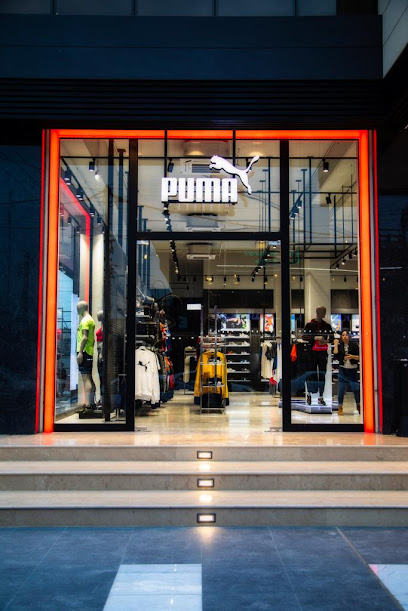
DURAID دريد
Discover Baghdad's unique fashion scene at Duraid, a vibrant clothing store offering a blend of traditional and contemporary styles.
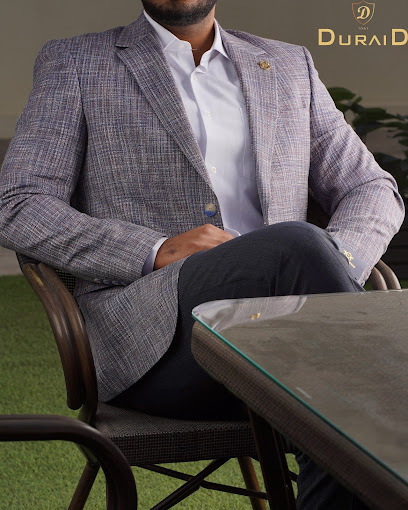
شارع العطار لأسواق الكرادة
Discover the colorful Attar Street Market in Baghdad, where local fashion meets vibrant culture in a unique shopping experience.
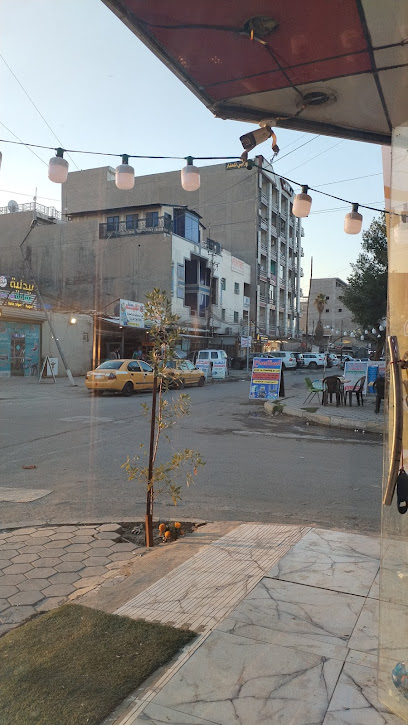
Karada store for electronic
Explore cutting-edge technology and exceptional customer service at Karada store, Baghdad's premier destination for mobile devices and electronics.
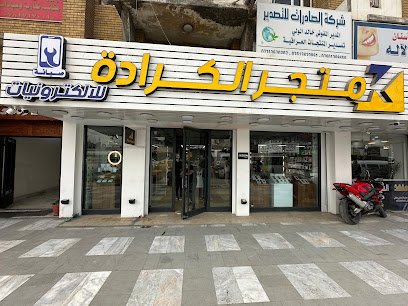
نوفا ستور Nova Store
Explore the vibrant clothing styles of Nova Store, where unique fashion meets exceptional service in a welcoming atmosphere.
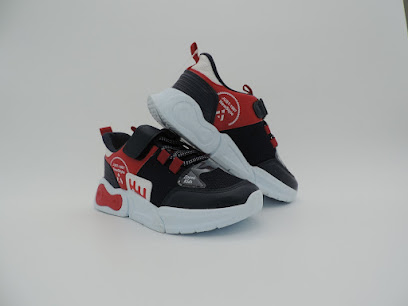
Al-karada
Experience the vibrant culture of Al-Karada, Baghdad, home to traditional tobacco shops and deep-rooted local customs.

Essential bars & hidden hideouts
D lounge & Restaurant
Experience the vibrant nightlife of Baghdad at D Lounge & Restaurant, where local flavors meet an energetic atmosphere for an unforgettable evening.
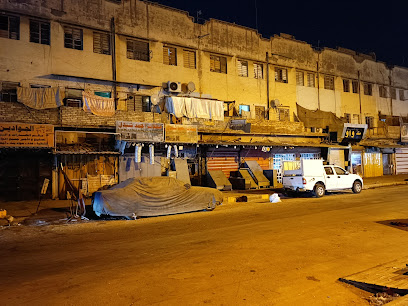
Lumana
Discover the lively atmosphere of Lumana, a bar in Baghdad that offers a unique blend of local drinks and vibrant nightlife.
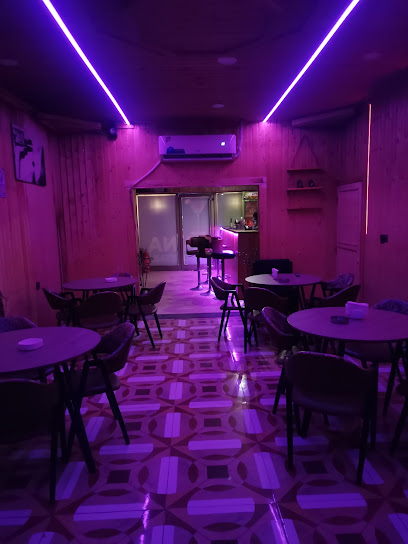
Solo bar
Discover Baghdad's vibrant nightlife at Solo Bar, where good company and great drinks come together in an unforgettable atmosphere.
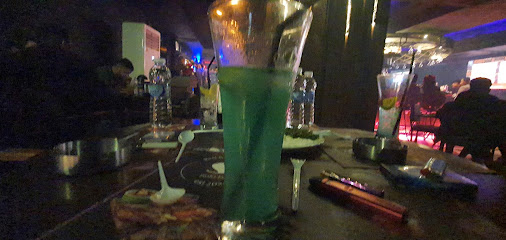
Beirut Bar
Discover the lively nightlife of Baghdad at Beirut Bar, where vibrant atmosphere meets delicious drinks in the heart of the city.
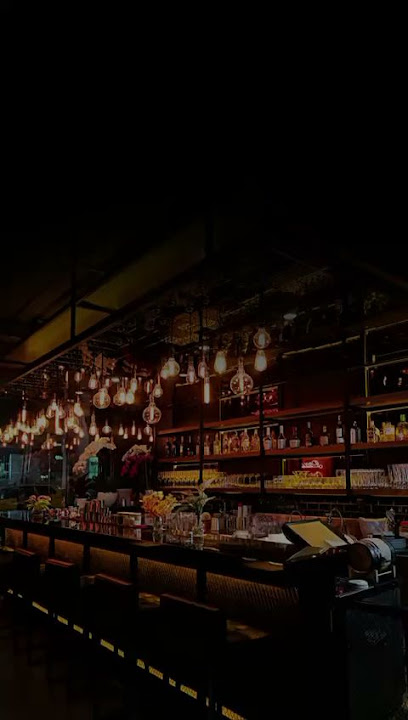
Crepe Landy
Discover the culinary charm of Crepe Landy, a delightful bar in Baghdad offering a diverse menu of sweet and savory crepes to tantalize your taste buds.
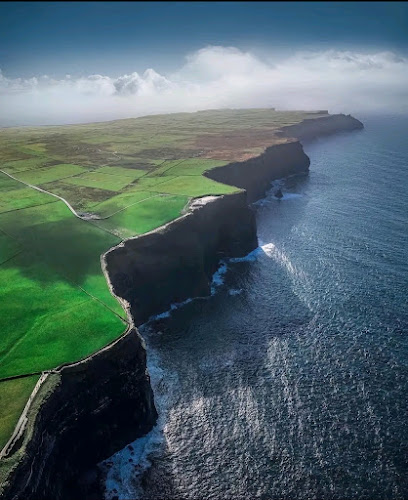
Baqer Najah
Experience the vibrant nightlife of Baghdad at Baqer Najah, a top-rated live music bar showcasing local talent and cultural flavors.
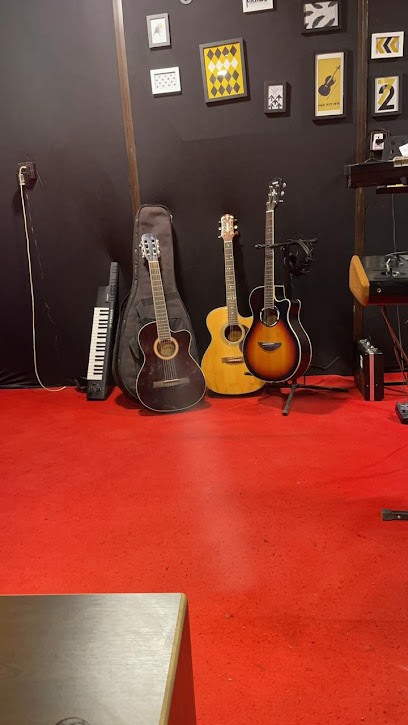
Aeoon Baghdad
Experience the vibrant nightlife of Baghdad at Aeoon, where local culture meets contemporary style in a lively bar atmosphere.
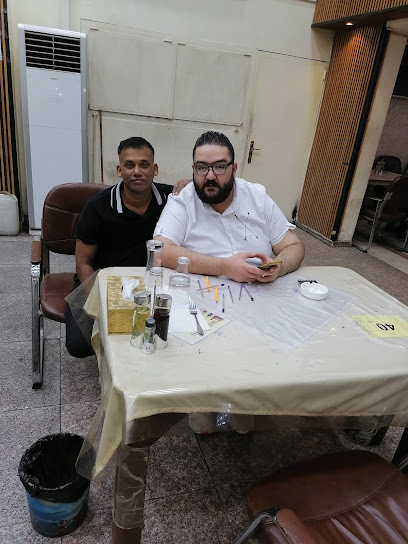
كرم دوغاتي
Experience the vibrant nightlife of Baghdad at كرم دوغاتي, where traditional charm meets modern flair in a welcoming bar atmosphere.

SALWAN for DUTY FREE
Experience the vibrant nightlife at SALWAN for DUTY FREE in Baghdad, where contemporary ambiance meets local culture.
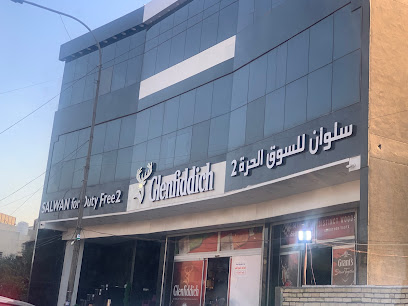
بغداد
Discover the vibrant bar scene of Baghdad, where rich culture meets modern nightlife in the heart of Iraq.

Local Phrases
-
- Helloمرحبا
[marhaba] - Goodbyeوداعا
[wada'an] - Yesنعم
[naam] - Noلا
[la] - Please/You're welcomeمن فضلك
[min fadlik] - Thank youشكرا لك
[shukran lak] - Excuse me/Sorryعذرا
[udhran] - How are you?كيف حالك؟
[kayfa halak?] - Fine. And you?بخير. وانت؟
[bikhair. wa ant?] - Do you speak English?هل تتكلم الانكليزية؟
[hal tatakallam al-ingliziya?] - I don't understandلا أفهم
[la afham]
- Helloمرحبا
-
- I'd like to see the menu, pleaseأريد أن أرى القائمة، من فضلك
[urid an ara alqaima, min fadlik] - I don't eat meatأنا لا آكل اللحم
[ana la akol al-lahm] - Cheers!صحتين!
[sahatin!] - I would like to pay, pleaseأود أن أدفع، من فضلك
[awad an adfa, min fadlik]
- I'd like to see the menu, pleaseأريد أن أرى القائمة، من فضلك
-
- Help!النجدة!
[alnajda!] - Go away!انصرف!
[insarif!] - Call the Police!اتصل بالشرطة!
[atasil bialshurta!] - Call a doctor!اتصل بالطبيب!
[atasil bialtabib!] - I'm lostلقد ضللت الطريق
[laqad dalalt altariq] - I'm illأنا مريض
[ana mareed]
- Help!النجدة!
-
- I'd like to buy...أود أن أشتري...
[awad an ashtari...] - I'm just lookingأنا فقط أتفرج
[ana faqat atfarg] - How much is it?بكم هذا؟
[bikam hadha?] - That's too expensiveهذا غالي جدا
[hadha ghali jiddan] - Can you lower the price?هل يمكنك خفض السعر؟
[hal yumkinuk khafeed alsu'ar?]
- I'd like to buy...أود أن أشتري...
-
- What time is it?كم الساعة؟
[kam alsaaa?] - It's one o'clockالساعة الواحدة
[alsaaa alwahida] - Half past (10)الساعة العاشرة والنصف
[alsaaa alashira walnisf] - Morningالصباح
[assabah] - Afternoonالظهر
[aldhuhur] - Eveningالمساء
[almasa] - Yesterdayالبارحة
[albariha] - Todayاليوم
[alyawm] - Tomorrowغدا
[ghadan] - 1واحد
[wahid] - 2اثنان
[ithnan] - 3ثلاثة
[thalatha] - 4أربعة
[arba'a] - 5خمسة
[khamsa] - 6ستة
[sitta] - 7سبعة
[sab'a] - 8ثمانية
[thamanya] - 9تسعة
[tis'a] - 10عشرة
[ashara]
- What time is it?كم الساعة؟
-
- Where's a/the...?أين...؟
[ayn...?] - What's the address?ما هو العنوان؟
[ma huwa al'awn?] - Can you show me (on the map)?هل يمكنك أن تريني (على الخريطة)؟
[hal yumkinuk an tureeni (ala alkhariata)?] - When's the next (bus)?متى يأتي الحافلة التالية؟
[mata yati alhafilat altaliya?] - A ticket (to ....)تذكرة (إلى...)
[tazkira (ila...)]
- Where's a/the...?أين...؟
History of Al-Karada
-
Al-Karada, located in the heart of Baghdad, has been a vital area since the city's founding in the 8th century. This neighborhood became a hub for trade and commerce due to its proximity to the Tigris River and its strategic location near the city center. The area witnessed the flourishing of various cultures and communities, reflecting Baghdad's historical status as a melting pot of civilizations.
-
In the 8th and 9th centuries, Al-Karada gained prominence during the Abbasid Caliphate. This period saw Baghdad become a center of learning and culture, with Al-Karada benefiting from the influx of scholars, traders, and artisans. The neighborhood's markets thrived, contributing to the economic prosperity of Baghdad, which was known for its intellectual and cultural advancements.
-
The 20th century brought significant changes to Al-Karada as Baghdad modernized. The neighborhood saw the introduction of new infrastructure, including roads and public transport, which enhanced connectivity to other parts of the city. The establishment of shops, cafes, and residential buildings transformed Al-Karada into a vibrant urban space, catering to the growing population of Baghdad.
-
Al-Karada has experienced substantial turmoil due to the various conflicts that have affected Iraq, particularly during the Iraq War in the early 2000s. The neighborhood witnessed violence, displacement, and destruction, leading to a decline in its once-thriving commercial activities. However, resilience among the local population has led to gradual rebuilding efforts and a return to daily life.
-
In recent years, Al-Karada has seen a cultural revival, with efforts to restore its historical sites and promote local businesses. The neighborhood is known for its vibrant street life, traditional markets, and diverse eateries, reflecting the rich culinary heritage of Baghdad. Al-Karada serves as a testament to the enduring spirit of its residents and their commitment to preserving their cultural identity amidst challenges.
Al-Karada Essentials
-
Al-Karada is easily accessible from various neighborhoods in Baghdad. It is located approximately 10 kilometers from the city center. Taxis are the most common mode of transportation, and they can be hailed from almost anywhere in the city. Alternatively, you can use local minibuses, known as 'microbuses,' which provide an economical way to travel around the city. If you are coming from the airport, consider hiring a private car or taxi service for safety and convenience.
-
Al-Karada is a bustling neighborhood with many attractions within walking distance. Taxis and ride-sharing services are widely available and offer a convenient way to navigate longer distances. Public buses also operate in the area, but they may be less reliable. Bicycles can be rented from local shops, but be cautious of traffic conditions. Walking is a great option for exploring local markets and eateries.
-
While Al-Karada is generally safe for tourists, it is important to remain vigilant. Avoid areas with high crime rates, such as the outskirts of the neighborhood after dark. Petty crime, such as pickpocketing, can occur in crowded places. Be cautious when using ATMs and avoid displaying valuables. It's advisable to stay informed about the local security situation and heed any travel advisories.
-
In case of an emergency, dial 115 for police assistance or 122 for medical emergencies. It is recommended to have a local contact for emergencies, such as your hotel or a trusted guide. Familiarize yourself with the nearest hospital or medical facility in Al-Karada. Carry a copy of your passport and any important medical information. Travel insurance that includes coverage for emergencies is highly advisable.
-
Fashion: Do dress modestly, especially in public areas and religious sites. Women should consider wearing a headscarf when visiting mosques. Religion: Do respect local customs; avoid discussing sensitive religious topics. Public Transport: Do be courteous and give up your seat to elderly passengers. Don't engage in loud conversations. Greetings: Do greet locals with a handshake and a smile. Eating & Drinking: Do try local delights such as kebabs and sweets, but don’t eat or drink in public during Ramadan.
-
To experience Al-Karada like a local, visit the local souk (market) for fresh produce and traditional Iraqi goods. Engage with shopkeepers and ask about local delicacies. Try to learn a few basic Arabic phrases; locals appreciate the effort. Don’t miss the opportunity to enjoy traditional Iraqi coffee in a local café. Participating in local festivals or events can provide deeper insights into the culture.
Nearby Cities to Al-Karada
-
Things To Do in Karbala
-
Things To Do in Najaf
-
Things To Do in Kirkuk
-
Things To Do in Sulaymaniyah
-
Things To Do in Amara
-
Things To Do in Erbil
-
Things To Do in Mosul
-
Things To Do in Arar
-
Things To Do in Dohuk
-
Things To Do in Basra
-
Things To Do in Jahra
-
Things To Do in Kuwait City
-
Things To Do in Hawalli
-
Things To Do in Sakakah
-
Things To Do in Farwaniya










